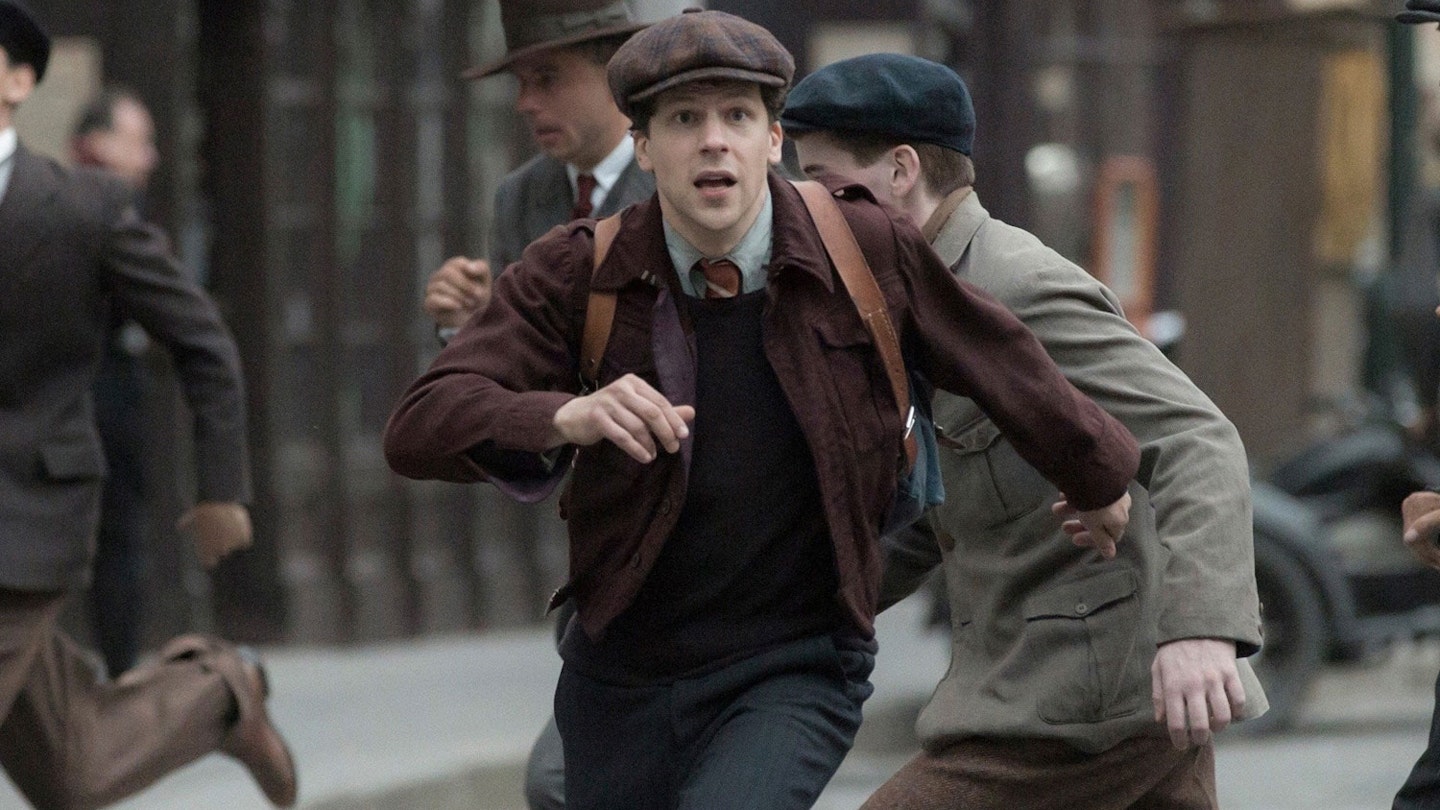Neither a fully drawn biopic nor a galvanising or original war picture, the execution of Resistance remains as vague as its title. Despite the smart casting and convincing performance of Jesse Eisenberg as mime artist-turned-war hero Marcel Marceau, too much of the film obscures both Marceau’s talent and his story.
A scattershot portrait of a man who should have just been given a straightforward celebratory biopic
Marceau’s identity is only explored in bullet-point tropes, moving swiftly on once one-line character traits and dynamics have been laid out. There is a somewhat strained relationship with his father – who after seeing him perform a Chaplin act calls him “a clown dressed like Hitler in a whore house” – which never really goes anywhere, a similarly inconsequential resentment involving his brother, and a romantic subplot with fellow Resistance member Emma (Clémence Poésy) that just fades into thin air.
Every satellite character feels instantly forgettable, from Marceau’s loved ones to notorious Gestapo officer Klaus Barbie (Matthias Schweighöfer) asking for advice on how to raise his own child.from Marceau’s loved ones to a random officer on a train asking for advice on how to raise his own child. The script seems constantly distracted, creating a scattershot portrait of a man who should have just been given a straightforward celebratory biopic.
And there would be plenty to celebrate – Marceau’s most renowned achievement being the evacuation of thousands of orphaned children across borders. But this historic act is lensed in dark, almost indiscernible hues, only really explored over the final half-hour of the film. Add to that scenes of daily life under a Nazi regime that look as generic as they come, and it’s hard to know what you’re supposed to be looking at. The final result is like a cabaret show with too many acts: frustratingly underwhelming, a waste of many talents that runs itself into the ground.
